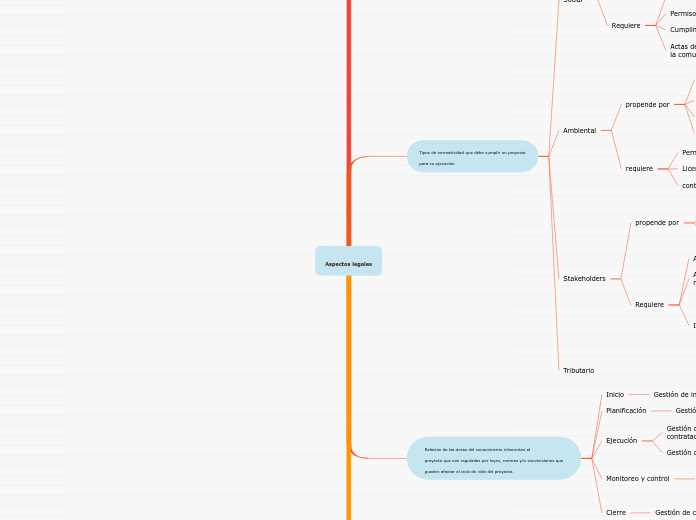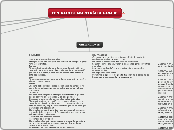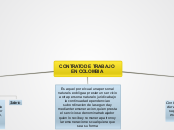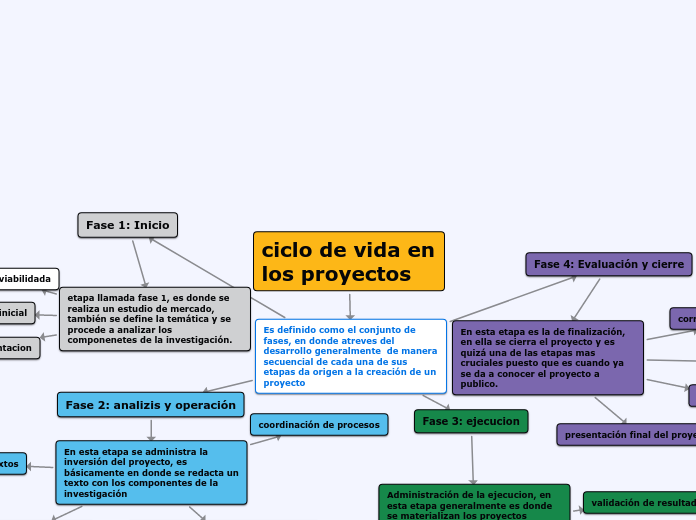Aspectos legales
To name your story, you have to think about the overall message and what you want your audience to understand from the story. Also, make it relevant and easy to remember.
Tipos de relaciones legales que se establecen para el desarrollo
de un proyecto, desde el punto de vista contractual.
Contratos especiales con entidades sin ánimo de lucro
Contratos de concesión
Adquisición y arrendamiento de bienes inmuebles para entidades públicas.
Venta de bienes del estado
Contratos interadministrativos
Contrato de servicios de salud
Contrato de prestación de servicios
Agrupan
Apoyo a la gestión
Actividades manuales o de ejecución, ocasionales, con fines específicos.
Relacionados con actividades operativas, logísticas o asistenciales.
Servicios profesionales
Incluye servicios técnicos y tecnólogos.
Son diferentes a los servicios de consultoría derivada de las funciones propias de la entidad.
De naturaleza intelectual
Se pueden celebrar con personas naturales o jurídicas
No generan relación laboral ni prestaciones
Son de contratación directa
Relación de las áreas del conocimiento inherentes al
proyecto que son reguladas por leyes, normas y/o convenciones que
pueden afectar el ciclo de vida del proyecto.
The ending of a story is essential. We all know that if the ending is weak, what happened before loses its importance. So make it unpredictable, but fair. A resolved ending answers all the questions and ties up any loose threads from the plot.
Gestión de clausura
Cierre prematuro
abortados-cancelados-en situación crítica.
Una vez completado
Monitoreo y control
Gestión integrada de control y seguimiento de todas las áreas de conocimiento para llevar al logro de los objetivos.
Gestión de calidad: cumplimiento de normas
Gestión de recursos: procesos de adquisiciones, contrataciones y
Ley de contratos sector público 9/2017
This is the closure section of the story.
See examples of possible outcomes below:
- all problems have been solved
- it's clear how each one of your characters ends up
- your main character is transformed by the challenge
Gestión de alcance: recopilación de requisitos
Try answering these questions to come up with a closure:
- Have all the problems been solved?
- Is there a clear picture of what happens with each character in the story?
- Has the challenge transformed your main character?
- How do the characters feel in the end?
This is the moment when the main character surpasses the last obstacle and finally faces their greatest challenge.
The climax usually follows one of these patterns:
- realization
- resolution
- choice
Type in your answer.
Gestión de integración: acta de constitución
Tipos de normatividad que debe cumplir un proyecto
para su ejecución
The middle of the story is where you add layers of complications that will lead to the end. Reveal more about the character's journey. Did their personality go through changes? How did they overcome the challenges? And as you build up the story’s central conflict, make it more personal to that character. Also, from the middle act, you have to lead into the final act.
Tributario
Stakeholders
There wouldn't be any tension and excitement in your story if there weren't any obstacles in your character's way.
Incluye aspectos relacionados con
Lucha contra la corrupción
Medio ambiente
Normas laborales
Derechos humanos
Aplicación de modelos de operacionalización de los mismos.
Análisis completos e integrales de los mismos
A story is nothing more than a character overcoming a series of difficulties to reach the desired goal. Obstacles usually create suspense and conflict. In overcoming obstacles, there is growth: weak becomes strong; hatred turns into love; sadness into happiness; wrong into right; lies into truth; or evil becomes good.
See a few examples below:
- stopping a meteor
- finding a killer
- finding love
Integrarlos a las estrategias de la gestión de los proyectos
Identificar demandas y expectativas de los grupos de interés
Ambiental
Your character(s) need(s) motivation in order to solve the challenge(s).
requiere
Secondary characters also might have motivs beacuse of which they may cross path with main character or which might trigger them to help the main character.
contratos y planes de manejo
Licencias y concesiones
Permisos ambientales
Why does your character need to confront this challenge? What does he/she expect to accomplish by solving it?
See a few examples:
- will marry in 3 days
- can fix the mistakes of the past
Motivation
Protección del suelo,flora, fauna, paisaje
Almacenamiento adecuado de materiales
Manejo de residuos y control de emisiones atmosféricas
Social
Each story has a main character and that character usually needs to solve a problem or challenge. The character's challenge is the one that creates tension throughout the story.
Requiere
Type in any other challenges which other characters in the story need to face.
Actas de reuniones, planes de quejas y reclamos con la comunidad, registro de comités ciudadanos.
Cumplimiento normas de seguridad industrial
Permisos de ocupación de espacio público y ruidos
Planes de manejo de tránsito
propende por
In most stories, there are 3 challenges. The number 3 is a mystical number symbolizing completeness. Try to come up with interesting challenges with which your character needs to struggle.
See a few examples below:
- turns into a werewolf at night
- is sent back in time
Relaciones con la comuidad
Cumplimiento normas de seguridad
Protección del espacio público
Aspectos legales involucrados en el ciclo de vida del proyecto.
In the beginning of the story (or the exposition), you will need to introduce the setting and characters. You might also want to introduce the main conflict. This part of the story is important because it gives the reader necessary background information and maybe even a first insight into a character’s personality.
Cierre
The setting (time & place) of a story can change throughout the plot.
Memorias y acta de entrega de proyecto culminado
The time of the story can also change. It can describe the event of a single day or can include an entire year's plot. Anyway, don't forget to mention it.
verificación de procesos y resultados
Your story can take place wherever your imagination will take you to.
For example: in an elevator, in an enchanted forest, etc. Don't forget to give details of the environment each time the setting changes, otherwise, the story can be confusing. Also, mention the seasons as each of them has unique weather and events.
Seguimiento y control
Verificar cumplimiento del plan de acción ajustado a la normatividad para evitar riesgos innecesarios y realizar ajustes.
Ejecución
Acción y atención de imprevistos en el desarrollo ajustado a las regulaciones vigentes (ambiental,salud,contratación,entre otros)
Planificación
Considera normas y regulaciones existentes según el carácter del proyecto.
Contrato que defina con claridad los términos de los acuerdos.
estrategias ajustadas a la propuesta de inicio
Inicio
Characters are essential to a good story. Usually, the protagonist(s) is/are the most affected by the plot. Introduce a character by focusing on their actions, interests, and occupation, as the physical appearance doesn't make a difference in most cases.
Acta de constitución
Type in the name of your character.
Documentación legal
Estudio de factibilidad
What is your character's main goal?
fight Evilfind lovedefeat his/her enemyrule the worldmake friendstime travelmake an awesome discoveryOther
Interesados
Which traits best describe the character's personality? Choose more if necessary:
introvertedloyalkindindependentquick-thinkingadventuresomeidealisticsweet-naturedcalmrisk-takercreativewittystrictfussyweirdclumsyharshaggressivecarelessclingingcowardlycrueldeceitfulimpulsiveOther
Alcance y recursos y análisis de tiempos y costos
Choose the type of your chacter:
Protagonist (main character)Antagonist (main character's opponent)Flat (stereotypical character)Round (his/ her personality develops throughout the story)Static (doesn't evolve as a person throughout the story)Dynamic (dramatical change in personality)Confidant (the main character trusts him/ her)Foil (contrasting character who enhances the personality of another character)Other










